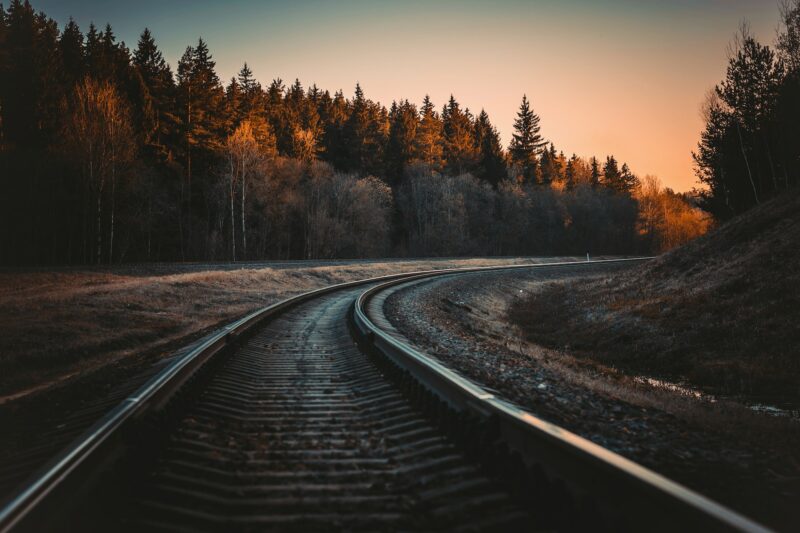When we think of railways, some images of speeding locomotives and the clickety-clack of wheels on tracks come to our minds. However, there’s more to these iron arteries than meets the eye. Railway design is a blend of functionality and aesthetics, where engineers and designers create a masterpiece of modern transportation together.
In this journey through the world of railway design, we’ll explore how rail pullers and rail welding equipment play a pivotal role in shaping these iconic routes, turning them into mesmerizing works of art.
The Heart of Railway Design: Functionality Meets Aesthetics
At first glance, railway tracks may appear as simple strips of metal, but a closer look reveals the intricate work that goes into crafting them. Rail pullers, those mighty giants of the rail world, are the unsung heroes behind the scenes.
They’re the muscle that pulls and aligns the tracks, ensuring that the rails stay true to their path. With precision and strength, rail pullers bend and shape the rails to perfection, making them ready to carry tons of cargo or whisk passengers away on scenic journeys.
Rail welding equipment, on the other hand, is the artist’s palette, allowing railway designers to seamlessly connect rails, creating a smooth canvas for trains to glide upon. The welds are the hidden stitches binding the tracks together while preserving their aesthetics.
It’s the attention to detail, the fusion of metal, and the artistry of these welds that make the railway not just functional but also a thing of beauty.
Aesthetics on the Tracks: From Urban to Natural Wonders
 Beyond their technical prowess, railways are a canvas for aesthetic expression. Imagine the picturesque landscapes painted by train tracks snaking through lush valleys or clinging to rugged cliffs. The artistry of railway design comes to life as tracks gracefully curve through breathtaking vistas, offering travelers a front-row seat to nature’s wonders.
Beyond their technical prowess, railways are a canvas for aesthetic expression. Imagine the picturesque landscapes painted by train tracks snaking through lush valleys or clinging to rugged cliffs. The artistry of railway design comes to life as tracks gracefully curve through breathtaking vistas, offering travelers a front-row seat to nature’s wonders.
In urban landscapes, railways are the lifeblood of a city’s connectivity, and their design reflects the spirit of the metropolis. Gleaming modern stations, beautifully landscaped platforms, and the integration of art into railway infrastructure showcase a commitment to both functionality and aesthetics. Think of subway stations adorned with colorful murals or high-speed rail terminals resembling futuristic marvels.
Heritage and Innovation: Preserving the Past, Embracing the Future
Railway design isn’t just about the present. It connects the past and the future. Historic railways, with their charming vintage stations and iconic bridges, are a testament to the enduring beauty of yesteryears. Engineers, with a touch of nostalgia, work diligently to preserve these treasures, ensuring they stand as living monuments to the artistry of rail travel.
Innovation, too, plays a significant role in railway design. The marriage of cutting-edge technology with timeless aesthetics results in rail systems that are not only efficient but also visually stunning. Magnetic levitation (Maglev) trains, for instance, offer a glimpse into the future as they seem to float above the tracks, embodying the elegance of progress.
A Journey Worth Taking
 The art of railway design is a harmonious blend of function and form. Rail pullers and rail welding equipment form the foundation upon which these remarkable journeys are built, while aesthetics elevate the experience to new heights. From meandering through natural landscapes to enhancing urban environments, railways are a testament to human ingenuity and the enduring allure of the tracks.
The art of railway design is a harmonious blend of function and form. Rail pullers and rail welding equipment form the foundation upon which these remarkable journeys are built, while aesthetics elevate the experience to new heights. From meandering through natural landscapes to enhancing urban environments, railways are a testament to human ingenuity and the enduring allure of the tracks.
Next time you get on a train or see the tracks in your city, take a moment to appreciate the artistry of their design. It’s a journey worth taking, where functionality meets aesthetics. In the end, the result is nothing short of a masterpiece on the move.
